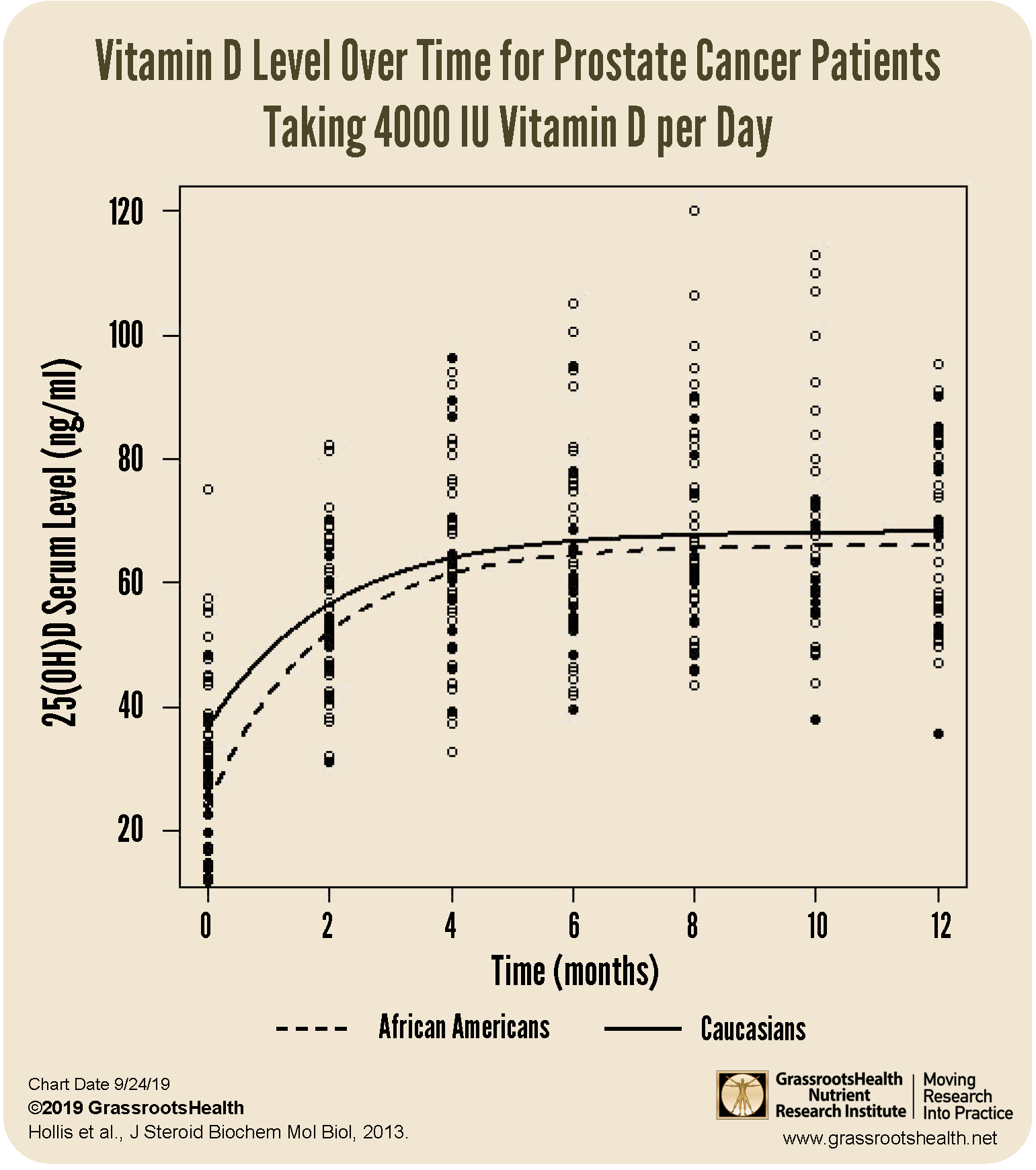Published on September 25, 2019
 Did you know that one out of every seven men will get prostate cancer in their lifetime? This is much too high.
Did you know that one out of every seven men will get prostate cancer in their lifetime? This is much too high.
Since it is prostate cancer awareness month, we wanted to take the opportunity to remind everyone about research findings on vitamin D and prostate cancer. One of our panel scientists, Dr. Bruce Hollis, was one of the first to study giving larger doses of vitamin D to participants, something that was thought to be potentially unsafe before 2010. (He was the first to get permission to give 4000 IU/day back in 2007.)
Vitamin D and Prostate Cancer: Results from Dr. Hollis
Hollis and colleagues ran an intervention study at the Medical University of South Carolina (MUSC) on 52 men who had been diagnosed with stage 1 prostate cancer. They purposely did not conduct an RCT as they wished to give everyone in the study vitamin D. They used a dose of 4,000 IU/day of vitamin D for one full year while the participants were on a “wait and see” approach with their cancer.
The overall result was that almost 60% had a reduction in tumors (but no change to prostate-specific antigen) as opposed to doing nothing (they compared against non-participants and historical data). Of the 52 men, 15 (29%) went from a Gleason score of 6 (stage 1 or 2 cancer) to a Gleason score of 0 (no cancer cells detected).
In considering differences by race, the chart below, shows that while African Americans started with a vitamin D level of about half the value of Caucasians, after a year of taking 4,000 IU/day both race groups reached roughly the same vitamin D level (a mean of 60 ng/ml or 150 nmol/L).
Is 4000 IU/day the right amount?
The study showed promise, but note that at the 12 month mark, while the mean was 60 ng/ml (150 nmol/L), there is a wide range of 25(OH)D levels. There is one as low as 38 ng/ml (95 nmol/L) and one near 95 ng/ml (237 nmol/L). This is another reminder of the importance of testing your level and focusing on the serum level rather than the dose as the appropriate biological marker.
Learn more about this study and its findings by watching this video.
Do you know your vitamin D level?
Testing your vitamin D level regularly and taking daily steps to keep it at a target level of 40-60 ng/ml (100-150 nmol/L) is important for all stages of health. Through GrassrootsHealth Nutrient Research Institute, you can also track your omega-3 status, inflammation levels, and levels of essential nutrients and toxins. Find out your levels today! Log on to the shop (click the link below) to get your tests and see for yourself if your level can be improved.
Make sure you track your results before and after, about every 6 months!
How can I track my nutrient intake and levels over time?
To help you track your supplement use and nutrient levels, GrassrootsHealth Nutrient Research Institute has created an online tracking system called myData-myAnswers. For each specific supplement, you can track what days you take it, how much, and many other details. This will help you know your true supplemental intake and what patterns of use work for you to reach and maintain optimum nutrient levels. Check it out today!







